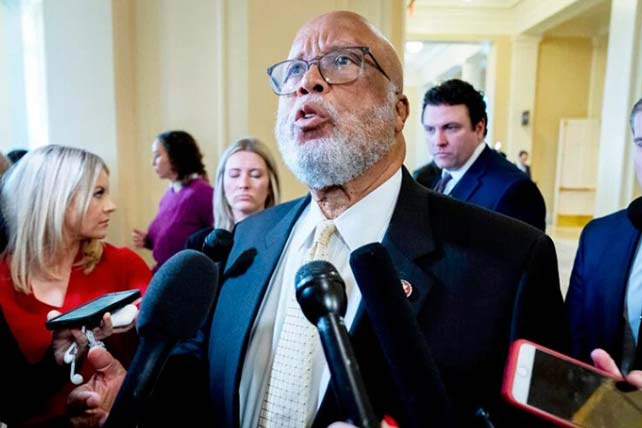WASHINGTON (RNS) — Asked by lawmakers earlier this year to describe those who attacked the U.S. Capitol on January 6, 2021, District of Columbia police officer Daniel Hodges told the House select committee tasked with investigating the insurrection that “it was clear the terrorists perceived themselves to be Christians.”
Two members of that same committee, Democrat Rep. Jamie Raskin of Maryland and Republican Rep. Adam Kinzinger of Illinois, also independently noted in conversations with the press the incidence of Christian nationalism.
“Had there not been some of these errant prophecies, this idea that God has ordained it to be Trump, I’m not sure January 6 would have happened like it did,” Kinzinger, an evangelical Christian, said on a Christianity Today podcast episode in March.
RELATED: Beth Moore’s Tweet on Christian Nationalism Goes Viral
Indeed, the influence of Christian nationalism among the Jan. 6 rioters was clearly evident in the flags and banners they waved. In the days before the assault, “Jericho Marches,” based on the Bible’s Book of Joshua, circled Capitol Hill praying for the election results to be overturned. When rioters stormed into the Senate chamber on Jan. 6, they huddled in prayer.
Yet the committee’s final report, released late on Thursday (Dec. 22), an 845-page document, mentioned Christian nationalism by name exactly once, and only in passing.
Some prominent Christian leaders have pressured the committee to examine Christian nationalism, sending a letter to the members earlier this year urging lawmakers to investigate the ideology’s impact on Jan. 6.
On Friday, the Rev. Nathan Empsall, head of the group Faithful America and a signer of the letter, released a statement in reaction to the report, saying, “The January 6 committee only giving only passing mention to the pivotal role of Christian nationalism in its final report is a missed opportunity to fully understand what led to violence at the Capitol — and to prevent future political violence.”
The report’s one overt reference to Christian nationalism came when describing supporters of Nick Fuentes, a right-wing Catholic who was in Washington, D.C., the day of the insurrection but has not been accused of entering the building itself. The report notes that Fuentes’ followers, often self-described as “Groypers,” have “repeatedly promoted white supremacist and Christian nationalist beliefs,” but did not elaborate in detail as to how.
RELATED: Pastor Robert Jeffress: If Voting One’s Values Is Christian Nationalism, ‘Count Me In’
Devotees of Fuentes’ group America First are known for chanting “Christ is king,” as they did in Washington the morning of the insurrection. Fuentes himself is one of several extremists who began openly associating themselves with Christian nationalism by name after the insurrection.
The report also makes multiple mentions of “Jericho March” events that led up to the Capitol attack, though the committee did not delve deeply into the religious tenor of those gatherings, despite hymn singing, banners with religious slogans and even the blowing of shofars by those in attendance.
The report does repeatedly cite a Washington Post oped by Peter Manseau, in which the historian and founding director of the Smithsonian National Museum of American History’s Center for the Understanding of Religion in American History, catalogued how religious beliefs influenced one rioter’s participation on Jan. 6.
Manseau responded to the report in a Twitter thread Friday, lamenting the “scant attention” paid in the report to “the religious dimensions of the attack,” arguing the omission “may prove a disservice to history.”
Manseau speculated the lack of attention paid to Christian nationalism may be a “strategic” move, saying on Twitter that committee members likely did not want to “risk ‘J6 Committee Targets Christianity’ becoming a talking point.”

